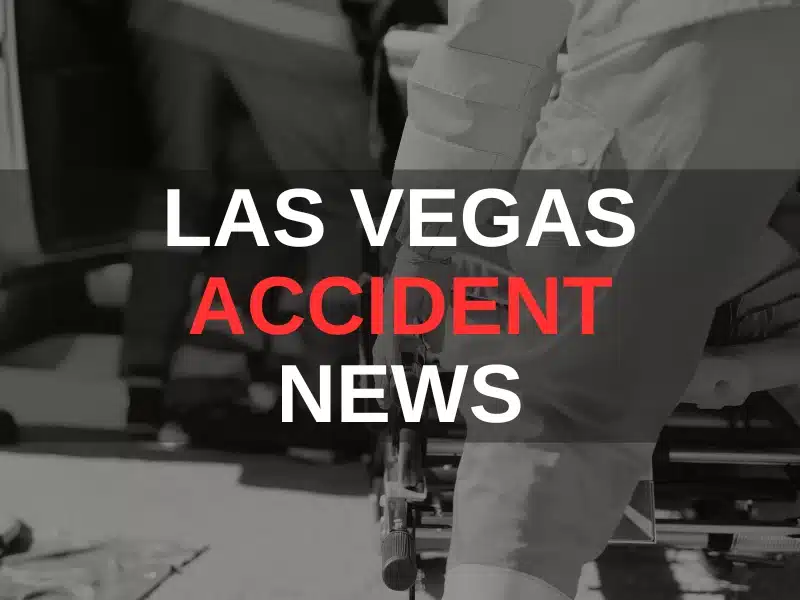Las Vegas, NV (July 8th, 2025) – Around 2 a.m. on July 7, 2025, a fight near the Orleans Hotel & Casino escalated into a stabbing that left four people injured, including two who were hospitalized.
Las Vegas is known for its 24-hour entertainment, high-end resorts, and bustling nightlife. But with the excitement comes an ongoing risk of violence, particularly at casinos and hotels. The recent incident at the Orleans Hotel & Casino has raised new concerns about how much responsibility resorts have when guests are injured or killed in violent incidents.
When casinos fail to provide adequate security, the results can be catastrophic, and legally actionable. Under Nevada law, victims may be entitled to compensation if a hotel or resort failed to prevent foreseeable harm.
Injuries Caused By Violent Incidents
When security fails and violence breaks out at a resort or casino, the injuries can range from moderate to life-altering. These aren’t accidents, they’re often sudden, aggressive, and fueled by high tensions, alcohol, or negligence. And the consequences extend far beyond the physical wounds.
Many victims experience trauma that affects their ability to work, socialize, or feel safe in public. Some require emergency surgery, extended hospital stays, or months of rehabilitation. Others may struggle with emotional aftershocks like anxiety, depression, or post-traumatic stress disorder (PTSD). The ripple effects of a single violent moment can disrupt every aspect of a person’s life—professionally, physically, and psychologically.
In legal terms, victims have the right to pursue compensation for all of it. Nevada law recognizes both economic and non-economic damages, meaning a victim can recover money for medical bills, lost wages, ongoing therapy, and pain and suffering. But the strength of a claim often depends on clearly showing the extent of the injury and tying it back to the resort’s failure to act.
Common Injuries in Casino and Hotel Violence Cases
The type and severity of injury often depends on the nature of the altercation—whether it was a one-on-one fight, a group brawl, an armed attack, or something that escalated from a verbal dispute. In many cases, victims don’t even see it coming.
Some of the most common injuries seen in violent resort incidents include:
Stab Wounds and Lacerations
As seen in the recent stabbing near The Orleans, edged weapons can cause deep puncture wounds, organ damage, and significant blood loss. Even when non-fatal, these injuries often require stitches, surgery, and extended care.
Blunt Force Trauma
Many assaults involve fists, furniture, or other objects. Victims may suffer concussions, skull fractures, or traumatic brain injuries, especially if they are struck in the head or fall onto hard surfaces like tile or concrete.
Broken Bones and Fractures
Violence in confined spaces, like hotel hallways or elevator lobbies, can lead to broken wrists, arms, ribs, or legs. These injuries may be the result of direct blows or falls during an attempt to flee.
Internal Injuries
Even without visible wounds, internal bleeding or organ damage can occur during a physical assault. These injuries are especially dangerous because they may not be immediately obvious but can quickly become life-threatening without treatment.
Soft Tissue Damage
Sprains, torn ligaments, and muscle injuries are common in physical struggles. These often lead to lingering pain and mobility issues that interfere with work or daily life.
Psychological Trauma
Emotional injuries may not leave scars, but they are just as real. Victims frequently report insomnia, flashbacks, panic attacks, and a lasting sense of fear, especially when the attack was unexpected or occurred in a place they once felt safe.
The impact of these injuries is often amplified by how and where they occur. A vacation, business trip, or night out can turn tragic in seconds, and the recovery process, both physical and emotional, is rarely short.
Resorts Have a Duty to Keep Guests Safe
Under Nevada premises liability law, resorts and casinos must take reasonable steps to protect guests from foreseeable harm. That includes crimes committed by third parties, such as fights, stabbings, and assaults.
What constitutes reasonable depends on several factors:
- Past incidents at or near the property
- Type of business and expected risks
- Time of day or week (e.g., weekends or late-night hours)
- Location—on the Strip, off-Strip, or in high-traffic zones
How Foreseeability Affects Legal Responsibility
Foreseeability is the legal threshold. If a resort knows (or should know) that an area is prone to violence, based on past incidents, time of day, or the nature of the business, it must take meaningful steps to reduce the risk. Such steps may include hiring more security personnel during late-night hours, monitoring surveillance cameras more actively, or restricting access to parts of the property known to attract problems.
When violence happens despite clear warning signs, and the business fails to act, victims may have a strong case for negligent security. Such Las Vegas hotel injury claims focus not just on what happened, but on what should have been done to prevent it.
When Casino Security Isn’t Enough
Fights and altercations are not rare in casino environments. Between alcohol, money, crowding, and late-night hours, the potential for conflict is built into the business model.
If a property is aware of previous disturbances, either on its own premises or just outside its doors, but doesn’t increase security or take other preventive steps, it opens the door to legal consequences. A Las Vegas casino injury lawyer may help victims and their families understand what should have been done to prevent their injuries.
Guests and employees may have already raised concerns. Similar fights may have taken place in recent weeks or months. The property’s own records may show a pattern of violence in certain areas or during certain hours. If the casino had reason to expect trouble and failed to respond, it may be responsible not only for the injuries caused but for the full financial and emotional toll on the victims and their families.
Holding Las Vegas Resorts Accountable for Guest Injuries
The Orleans stabbing is one of many examples showing how quickly violence can erupt, and how unprepared some properties may be to prevent it. Whether the incident happened inside or just outside the resort, the question isn’t just what occurred, but what could have been done to stop it.
Casinos profit from the draw of high-energy environments, but that energy comes with risk. When resorts fail to plan for that risk, guests pay the price. And when they do, the law offers a path forward.
If you or someone close to you was hurt in a violent incident at a Las Vegas resort or casino, you may have legal options.
George Bochanis Injury Law Offices represents victims of negligent security and violence-related injuries throughout the Las Vegas area. Our office is located in Las Vegas, Nevada. Call us at 702-388-2005 to schedule a free consultation and learn how we can help.




